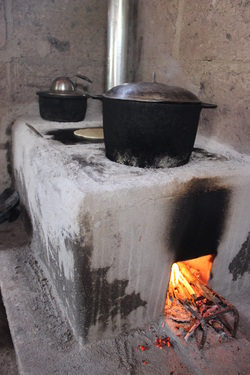 The Joco Justa improved stove The Joco Justa improved stove To cook in the rural communities, every household uses wood and builds a traditional fire. For 6-8 hours everyday (beans take a long time), women breath in the burning wood, trapped within the mud walls of their kitchen. You won't be surprised when I tell you that lung problems are the leading health issues of people in the communities.
Gas and electric stoves are not yet alternatives. However a stove that still uses wood can be an enormous improvement if it one, reduces the amount of smoke emitted, and two, uses less wood. Using less wood is an obvious boon to the local environment, as trees get cut down daily to fuel the ongoing cooking needs of households.
AsoFenix specializes in two "improved cookstoves" or cocinas mejoradas and has been building them in rural households for years. Using cement and some metal components, the resulting constructed stove reduces on average 70% of the emitted smoke and uses 65% less wood! Including material costs, a skilled laborer, and transportation, the stove costs about $130-$150 to build, however AsoFenix offers it to most households for a subsidized cost. In the end, most families pay about $40 (1,000 cordoba) and can pay it over a year, making the stove accessible to most families.
As part of the overall plan of improving lives in El Bálsamo, AsoFenix is encouraging families to replace their current stoves with improved ones. Most current stoves are a pile of rocks or some molded mud, that surround the wood and allow a pot to be placed above. To promote the improved cookstoves, we held a Fair in the community and offered families the chance to see four stove models and see get more information on their benefits. We encouraged participation through music, activities, a special snack, arroz con leche, and discounted prices.
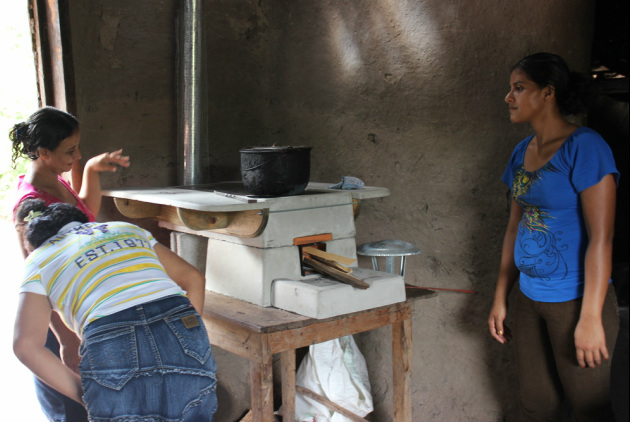 A few women getting a close look at the Onil model A few women getting a close look at the Onil model Women are 100% responsible for cooking and their participation was most important. In groups, women went between 3 households to see the new stoves, which had been built ahead of time. The host women did an amazing job of showcasing their stoves, pointing out that they wouldn't be able to be meeting in a kitchen with a traditional stove; they'd all be coughing and crying from the smoke. One of the host women, Eucebia, asked the crowd for the time as she started a pot of rice and showed everyone it took just a few minutes to boil and some 14 minutes to cook the rice, far less than the minimum 30 minutes over wood alone. With years of coughing and crying from breathing in overwhelming cook smoke, in addition to the affordable costs and appealing choices, many women were ready to sign up right away for new stoves. Construction of the stoves will begin next week!
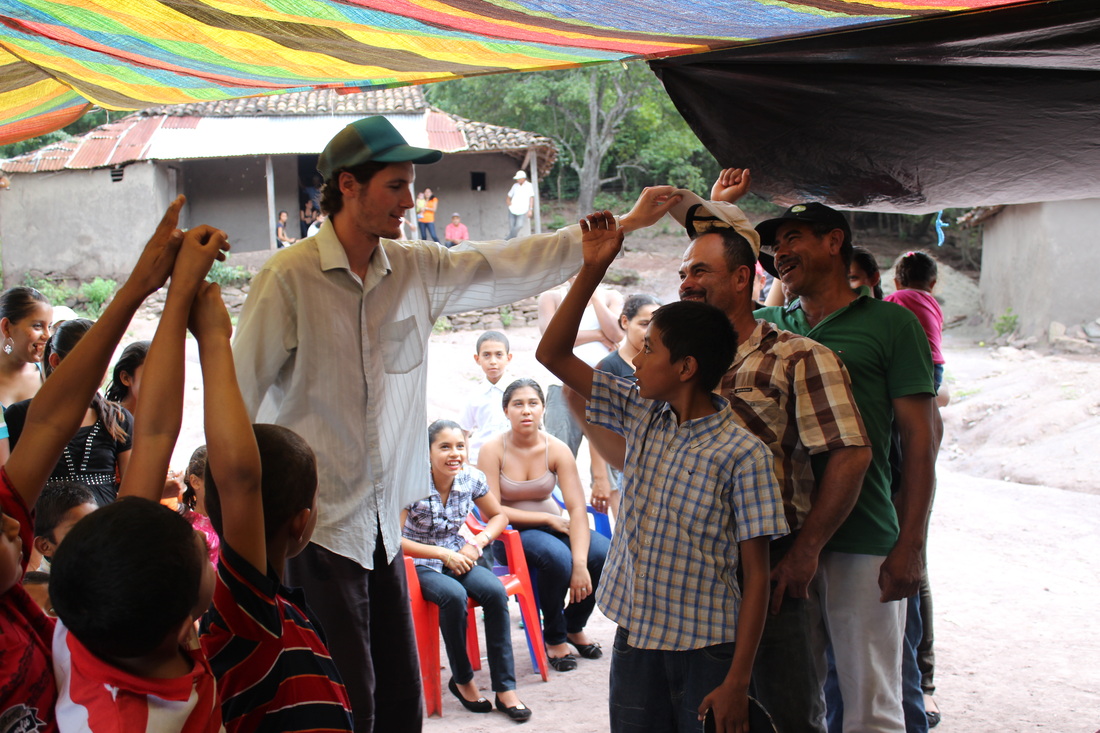 Having fun. A super important part of any work, we believe.
After living in Nicaragua for 8 months, we have some thoughts... Positive First
1. Fruit: Tropical delicious fruit is plentiful and super cheap. Snapshot: 6 pineapples for 40 cents, 25 bananas for 60 cents and 2 dozen mangoes for 80 cents. We eat lots of smoothies.
2. Cheap & frequent buses most places: Buses within the city cost 10 cents, an hour long bus to the campo costs 1 dollar.
3. Urania: Our super positive, sweet host-mom. We rent a room in her house. She loves anything we make in the kitchen, says “Gracias a Dios” about 18 times per day, and is one of the most caring people we know.
4. Cheap living: Rent is 1/8th what we've paid in California. 5. More sustainable lifestyles: Reuse is the norm, used clothing stores & market stalls everywhere, and you can’t help but know how much water you’re using when you have to flush a toilet by pouring 5 gallons into the tank. In the communities, people grow most of their own food, use minimal water, and only a few hours of electricity a day.
6. Hammocks: Most households have one of these relaxing bad-boys in the center of their living rooms. And are even found on boats.
7. Family time: People spend a lot of time visiting their family members’ and neighbors’ homes. It’s refreshing to see how close an entire family can stay.
8. Rainy season: Photo shoots become even easier between the months of June to November when the environment is green, lush, and wet.
9. Ometepe Island: Two volcanoes stationed on an island in the middle of a giant lake, beaches, hiking, biking, fishing, and Urania’s mom, Rosita. What’s not to like?
10. Baseball: Played nearly every day in the campo on a really rocky, inclined and worst quality field we’ve ever seen. Yet super fun to play with people that care so much about the sport.
Definitely Needs Improvement
1. Education system: Many students have to travel over an hour and a half by bus just to get to high school, which is one day a week on Sundays. Even those who make it to college seem to be very short on knowledge. Both access and quality are big issues.
2. Trash: Gets burned on the streets, breathing it in and smelling it is terrible. It's normal to litter and throw trash out bus windows.
3. Gender division: Women clean & cook in the house, men work outside, girls don’t play sports.
4. Managua: Disorganized. Hot and Humid, near constant sweating. Terrible place to walk or bicycle anywhere. Lake Managua is so polluted you can’t touch it. No street names or addresses exist....and that's confusing to deal with.
5. Lack of activities: When not working, most people sit, talking with family, or sitting and not talking, or watching TV. Not much of an activity based culture in Managua and hard to find things to do.
6. The nation’s main food dishes: Rice and beans without spices…every day. 2-3 times a day.
7. Lack of trust and collaboration between people: Outside of families, people don’t really work together. A lot more could be accomplished if people worked as a team to change their country for the better, community meetings, lobbying the government, or even starting projects together without relying on the government.
8. Less than effective government: Weak police presence, majority of wealth concentrated in 8 families, big promises for its people with little follow through.
9. How badly dogs are treated: Dogs are kept as pets for security, they don’t get petted or loved, get kicked and verbally punished for anything, and in the rural communities, only get fed old tortillas.
10. Overcrowded public transport: I didn’t think more than 20 people could fit in a 12 passenger van, but Nicaragua, you win.
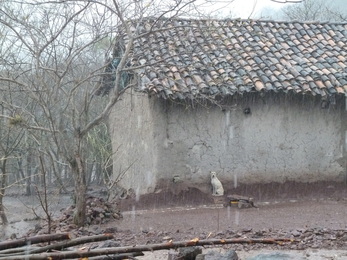 Walking through El Jocote and El Bálsamo now feels like a trek through a Central American jungle, compared with the dry and brown landscape of summer. It is now the rainy season (winter) in Nicaragua and the environment has changed more than we could have imagined. We were in El Jocote when the first rain poured down and it was thrilling. The clouds were dark and as the first raindrops fell, howls came out of the hills. Resounding yips and cries bounced off the mountainsides as people shared their excitement. Joel yodeled in agreement. It felt unifying. I was instantly reminded me of 'midnight yell' during finals week at UCLA. A sense of camaraderie, and how unique the dynamics of a small rural community are, made a big impression on me in that moment. Then it poured, pounding on the tin roof-tops and obscuring the view past the bare jocote trees across the road. Within days, everything was transformed; green leaves, yellow flowers, and white buds sprang from the trees.
Our timing was perfect to begin planting trees and take advantage of the rainy season from start to finish (in November). With two large plots to plant on, we started digging into the rock-dominated soil. Within 10 days, we planted about 90 trees, including mango, guava, lemon, cashew, and tamarind. Trees are amazing; they strengthen the watershed, purify the air, and make diversely-useful wood. Fruit trees give even more. Currently in El Jocote there are nearly no fruit trees. We hope that in a decade there will be a significant amount of fruit circulating throughout the community, offering the nutrients and calories of over 10 types of fruit. Simultaneously, the 50 trees planted near the water source will help to protect the water supply.
The major challenge of this project will be the care of the young trees in the summer when each tree will need to be watered individually twice a week. To address this, contracts have been made with two families to care for the trees on their land. With this accountability piece and the motivation of a future orchard, we believe the trees will be successful. Until then, we'll continue enjoying the rain and the beautiful landscape it fosters.
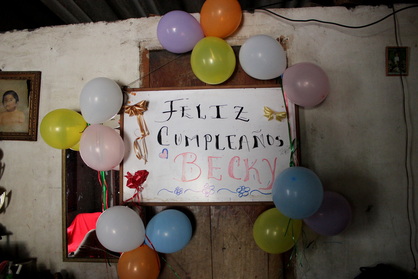 I celebrated my birthday with my host family in San Juan de la Concha (where I lived & went to Spanish school). Marina (my host mom) had invited us for the weekend because she said she was having a little family reunion and would like us there. So when we arrived at their house and Marina asked me to do an errand, getting some ingredients at the pulperia (street store), I thought nothing of it and headed off with Angelo to get some cabbage, rice, etc. Angelo practiced his English with me and I explained the meaning of the phrase “just for laughs.” We walked back in the brisa (light rain) and returned to the find the living room closed off and the lights off. All of a sudden the curtain was pulled back, lights turned on to illuminate balloons, decorations, a Feliz Cumpleaños sign and the whole family shouting “sorpresa!” I didn’t stop smiling for the rest of the evening, all the way through the big cake.
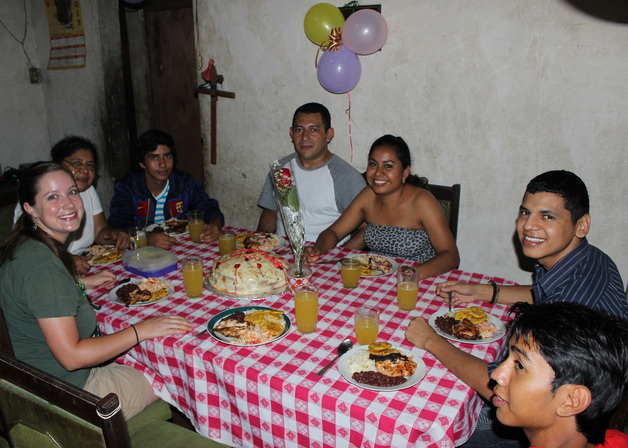
from left to right: Becky, Marina, Santiago, Fernando, Varania, Yarel, Angelo
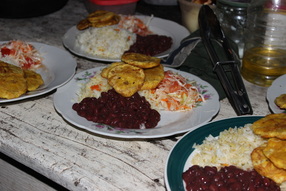 The dinner was all the more distinctive because I ate chicken for the first time in a full 10 years! At the end of my freshman year in high school, I helped a classmate research information for a debate on vegetarianism and I found that a vegetarian diet aligned with my values in so many ways that I made a huge decision. I became a vegetarian (and soon after a vegan) in one day, cold tofurkey. Over the years my reasons for excluding meat and minimizing the amount of dairy I eat have been reinforced through the scientific studies concluding that eating meats and dairy have worse and greater effects on the Earth and climate than anything else humanely driven. I have been a vegetarian chiefly for those environmental impact reasons and further motivated by health, workers rights, animal rights, corporation disapproval and frugality. I have absolutely loved being a vegetarian and vegan. In fact, I almost never craved meat until about 5 months ago. Without quinoa, tofu, tempeh, and many vegetables I used to eat regularly, I believe I’ve been looking for more diversity in nutrients. So for now I’ll be eating fish and chicken and won’t be a vegetarian for a little while, though I continue to feel empowered by the difference I can make through the decisions of what’s on my plate.
- Becky
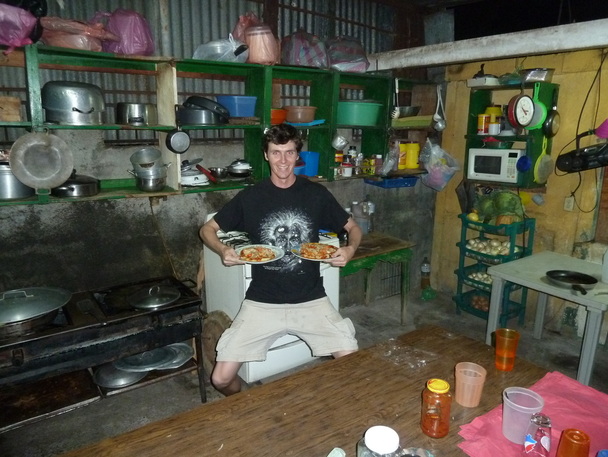
Sweltering, stuffy, & so sweaty. It's been hot in Managua: 95-100 degrees during the day and 85+ degrees throughout the night. It's the hottest time of year here, the worst part of el verano (summer), and we're just waiting for the rain to break. Nicaragua has 2 distinct seasons, the dry and the rainy, which is expected to start in the next couple of weeks.
On a cooler note . . . We moved to a home with a family in Managua in April and are really enjoying the home environment. The house is never empty and we come home to Urania, her husband Roberto, her best friend Angeluz, her cooking partner Norma, Norma's sons, her nephew Ernesto, and frequently a visiting neighbor. Being surrounded by kind & caring people is wonderful. Urania is a cook and makes meals for local businesses, so the kitchen is often in full use and rice & beans always in supply. We love having a bigger kitchen space and tools to cook a variety of foods; we've been playing with recipes for pizza, pancakes, and curry with local ingredients.
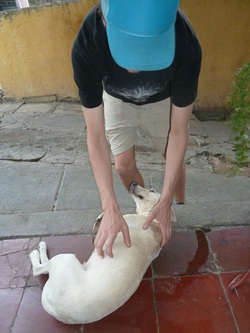 You can see Tessa's happy mark on the tiles You can see Tessa's happy mark on the tiles Everyday, we are greeted at the iron gate - typical of Managua homes - by Tessa the dog, who is so excited to see us that . . . she pees. (Tail wagging in addition to this causes an unpleasant situation, but we keep petting her anyway, she is a cute dog after all). While I'm petting her, Joel hilariously narrates Tessa's thoughts; probably pretty accurately too. Video by request.
Our new home is in a barrio (neighborhood) called Bello Horizonte, about 30 minutes bus trip from the AsoFenix office, which puts us a bit closer to the center of the city. It is a very safe area too.
Honestly, we do not like Managua much. And no one else seems to. But at least we have elements that we like, namely our new home.
We also miss you all a lot! We have internet in Managua and we would love to plan a video or phone chat to catch up!
- Becky
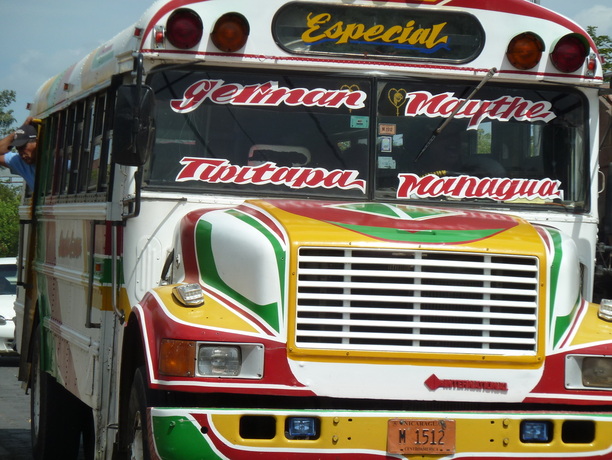 A glimpse of Managua
Can’t believe it? Neither could we.
The Thursday after our backpacks were stolen, we received a call from Marina, Becky’s host-mom when she was in Spanish school. At 6am, Marina calls, talking a kilometer a minute about how someone found Joel’s passport in the woods. What?! Someone had called her in the wee hours of the morning, reporting to have found some stuff scattered throughout the woods, including a passport and a notebook with her phone number in it. We call up this fellow; Darwin is his name and he says that he has found two backpacks, passports, some money and various other items scattered in the forest near his home in Ostional. Slightly suspicious and very excited, but enough motivation for us, we head down to Ostional the next morning. Before we go bounding into Darwin’s home, we talk to one of the community members of Ostional that we had met earlier, Julio, to learn what the town thinks of Darwin. Julio says that Darwin is a stand-up individual, but offers to accompany us to pick up our backpacks anyway. Once there, Darwin is excited to see us and immediately brings out two backpacks and a couple smaller pouches and lays them at our feet. Our stuff! Pretty pumped to see some things we thought were gone for good, we look through the backpacks to see what’s there. Passports, packs, water filter, money, notebooks, clothes...Everything except the SLR, iPhone, and other camera. Awesome. We get the story from Darwin of how he was searching through the woods for firewood, and came across my passport pouch, then later found a backpack, then another, all sprinkled through the woods. We came to the conclusion that the robber must have been running through the woods while simultaneously rifling through our things, taking the valuables and pitching the rest. That sucker didn’t want our beat-up pink frisbee! What a fool! Feeling a amazing sense of gratitude for this honest guy and a little giddy to have our things back, we give Darwin a reward and we much more contently leave Ostional once again. We thought we could put this behind us, but no, there is more to the story.
Exhausted and ready to return to Managua, we board the bus and put our recuperated backpacks on the rack above our seats. More and more people board the bus along the route out of San Juan del Sur, until it is completely sardined, with no standing room even. After a long day, Becky has dozed off, and I feel like it too. However, I notice that my backpack has started to slide towards the back of the bus about one foot, not normal for these buses, so I keep an eye on both packs. With the bus so packed, the standing people have to hold on to the luggage racks to keep their balance. The guy near my backpack seems to be a little too touchy for my taste though. So when we make a stop in the city of Rivas, I say enough is enough, and get up to move my pack. I grab my pack and slide it back to be right above our seats, and look over at Becky’s pack, and see that it is GONE.
You’ve got to be kidding me. Time to go into search and destroy mode. “Where is our backpack? Someone took our backpack!” yelled in Spanish. The bus passengers try to help, “Someone stole a backpack.” We start rushing off the bus, trying to find the pack and the person who took it. Someone starts running through the market with Becky’s pack. Becky and the bus attendant take off running behind him, weaving through the market. More and more people start running behind them, either trying to help or to see what happens. They are sprinting through vendors’ stalls and alleyways, until the bus attendant is able to reach out his arm and snatch the backpack off the back of the thief. Becky grabs it really quickly, holding it like a child. All the while, the thief slips into the market, free, but without any goods. We walk back onto the bus to a cheerful reception, and sit back down in our seats, packs in our laps.
Robbed two times in one week. We’ve had enough. The same backpack that we had just recovered that same day from the last robbery, no less. Shock. Disgust.
The result: two chase scenes and two captures (kind of), and an incredibly bitter and vulnerable feeling permeating our existence. The audacity to take something right above us, and the shame on our part that he almost succeeded. Just makes you want to scream and shake your fists in the air, like right before an epic middle-ages battle scene. Can’t stand the feeling of being seen as a dollar sign, and at the same time as fresh fish in prison.
All in all though, no one was hurt and we had recovered our things once again.
Fast forward another week and we have more news to share regarding this mess of events. We had been calling the police in San Juan every few days, with each response being either they have nothing new or that the investigator in charge of the case will not be working for the week. Every person we talked to about the police said the police basically do nothing and that we should not invest any hope in our case. We still kept calling. All of a sudden on a call, the policeman tells me they have caught the robber and have the professional camera as well. What?! Yes! Awesome. Nicaraguan police are good for something. Score one for justice! We skipped down to San Juan once again, this time with glitter raining down and a permanent rainbow above us, and return to Managua with Becky’s camera, tightly gripped in hand.
Apparently, the police were able to get the robber’s address in Managua from the other two thieves we had caught, and were able to recover the camera in San Juan, where he had sold it before returning to Managua. He will remain locked up for a year or so, depending on the ruling, which we will be a part of, since we will probably be asked to give a testimony in court in about a month.
So that’s all for that story at the moment. To sum it up, I think George W. Bush said it best, “There's an old saying in Tennessee - I know it's in Texas, probably in Tennessee - that says, fool me once, shame on - shame on you. Fool me - you can't get fooled again.”
Take care folks. Love to all.
Joel
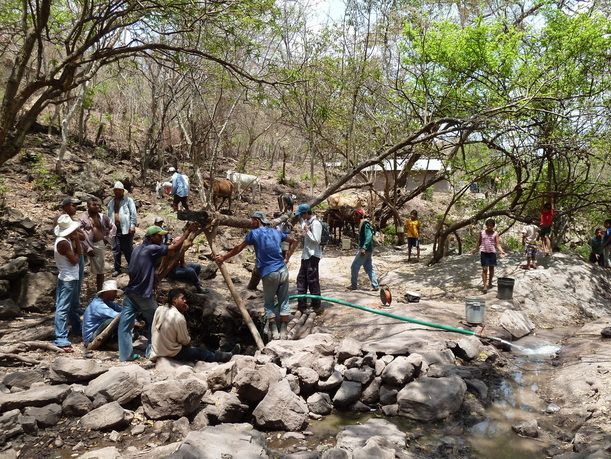 The new well that was hand dug! A huge new project is just getting started in the community of El Bálsamo (also in the zone of Boaco in central Nicaragua) where a Water Committee has been created, a big new well hand dug, topography study complete, data surveys underway, and a solar-powered pump to be designed. We've written more details on our project page here >> Hopefully in about 1 year this community will have running water in each of the approx 50 homes, addressing the issues of both quality and quantity of water and by extension health and time!
The Dalai Lama has said, “If you lose, don’t lose the lesson.” I’ve been thinking about this for the past day or so. Becky and I were robbed on Sunday morning on a beach in Ostional, south of San Juan del Sur. What is the lesson in that? 7am in the morning, we had set up a tent on the beach and had our backpacks inside. We had just crossed the border of Costa Rica and returned to Nicaragua to renew our visas. No one else on the beach except for three guys that had walked to the other side of the beach. We had slept with our passports and money belts on our bodies and were weary of people walking the beach at night. But morning came without a problem and Becky and I decided to take a short swim. While I had just caught a wave and body surfed back to Becky, she said she noticed someone near our tent, then running away. We immediately checked it out, discovering the zipper open and our backpacks gone. Becky starting screaming “Ayudame (Help me).” The two young men, who were part of the three we had seen earlier, walking past our tent took off running the opposite direction as the first. I chased after those two; instincts, chase those that run away from you. Sprinting along the rocky beach barefoot, 15 feet behind the two and closing in. Running past someone’s property, the two tried to enter through a gate, but the caretaker of the property didn’t let them, and we had trapped them. The police were called, and an hour later, they showed up, all the while, the man with the goods got farther away. Becky ran into the woods behind the tent, eliciting help from other neighbors and saw no sign of the thief. Now, the two we caught are in jail in San Juan del Sur awaiting their case. Based on the property caretaker witness testimony, we have a good idea of who the third person is, but there is no progress on finding him.
At the moment, I am internally running and turning in a maze of emotional directions. I feel anger and a need for revenge. I want to catch the thief, steal our own stuff back, and give him a good elbow in the face. When I imagine the events in my mind, I feel regret, if we could just go back in time and not go swimming in the ocean. Defeated and deflated as well. How could I let my guard down, as to let someone just walk into our tent and take our things. I had and still have the feeling that I am better than that, more vigilant, attentive, and smart about things. Yet because someone was able to get the best of us, I feel embarrassed. We had heard the warnings of people that the beach can be dangerous and to be careful. My own mother had told me before I left, not to go hanging around secluded beaches, that she didn’t want me to become a statistic. I heard her, understood her and others who said something similar, yet chose to anyway. They were right on Sunday morning. We were wrong. Mourning the loss of some valuable items, Becky’s SLR camera, iPhone, water filter and our passports; journals and memory chips filled with pictures gone too. Dreading having to replace certain things and spend more money when we try to be so frugal daily. And now? What lesson do we learn from this? Don’t leave your stuff unattended on a beach while you go swimming? Maybe, but I still don’t like the idea of not trusting anyone that is a stranger. The vast majority of people are good. We can’t let certain pieces of crap ruin that for the rest of us. What sort of relationships can we develop with each other if we do not have a certain faith in society, a trust in the good of people. Maybe the lesson is to not travel with such valuable things. But then, when do we ever use these valuable and useful tools, only in our homes? No.
After the theft, we were left with our tent, some clothes, breakfast we had bought, and my water bladder. And because of the theft, we became much more involved with the community of Ostional, the caretaker offering us to stay in his home, giving us food, and the town giving us bus money to get back to Managua. Again, while working with the police in charge of the case in San Juan del Sur, we were given food, housing and friendship by the neighboring Firefighters. Food, water, shelter, and a community. We had the most important things. Giving us the chance to recognize how much we really have and to appreciate the good people that surround us. Maybe that is the lesson.
"If you lose, do not lose the lesson." - Dalai Lama
| | Joel and I decided to bake galletas (cookies) for my host family in La Concha (where I went to Spanish school), who we're visiting this weekend! Our only option is baking them in the toaster since there's no oven at the office in Managua. It is Semana Santa here in Nicaragua where most of the country isn't working and celebrating Jesus's resurrection.
While making several batches, we learned the quarks of baking in a toaster oven: baking for 4 minutes is about ideal. Any more than that, and they get too crispy for our tastes. We just used regular recipes for M&M cookies and Becky's favorite oatmeal raisin cookies. When we gave them to my homestay family, they didn't last till the next morning. |
Living part time between two places (the capital city of Managua and the rural community El Jocote) creates wonderful contrast in environment and makes for interesting weekly commutes. In short, it takes about 5 hours, $2, two buses from the edge of Managua and then a half hour hike to get to El Jocote. Here's what it looks like for us...
After a day or two in the office in Managua, planning projects, doing research, and buying materials, we head out to El Jocote. There's only one bus that will get us down the long dirt road to the neighboring town of El Espino, so we have to make it out there by 1:30pm. We leave the office, on the far east side of Managua and after a quick walk to the Carretera Norte (the highway) we cross six lanes of fast moving traffic - the common blend of cars, trucks, buses, and motorcycles, just imagine every other vehicle with extra people, sitting in the back or hanging out the bus doors. Buses pass frequently, many heading north around the east side of Lake Managua. We take a bus to el departamento (like a state of a country) of Boaco. How do we distinguish the buses? Each is usually marked clearly with its destination, although in smaller lettering than statements such as "El sangre de Dios tiene Poder," and the destination is clarified by the yelling hombres hanging out the bus doors. 25 cordobas ($1) later and we've gotten in the bus, immediately grabbing hold of a bar as the bus jolts forward to keep up with traffic. All seats are full. The aisle is totally full, with two people back to back along the bus. We push through, surely knocking heads with our mochillas (backpacks) and sombreros (Joel has a really big hat, which la gente - the people - like to identify him with). We brace ourselves for the ride, as the bus jolts to a stop and picks up speed again quickly after each parada. Sweat dripping everywhere, pressed up against seats and people, I can guarantee we are both thinking of one thing: jugo de maracuya (passion fruit juice). You see, there's something amazing about a cold beverage when you're so very hot and we've found a little place in Teusptepe that has fresh fruit juices, ice cold. It's a required stop where we catch the next bus to El Espino and now we greatly look forward to it. Once we arrive in Teusptepe, we see a lot of familiar faces waiting for the bus too. Quite a few people from El Jocote travel to Boaco or Managua each week for doctors appointments and to stock up on household supplies or food. We wait together until the distinct sound of the old yellow school bus makes most of the women jump to their feet, grab their large bags of purchased goods and dash to the perceived stopping place of the bus. A seat on the bus is at stake, the only alternative to which is standing and holding on tightly along the very rocky dirt road for 2 hours. From my point of view, a seat is preferable but still ends in tailbone soreness. Joel, however, cannot even fit his long legs between the seats. We must wait for the squeeling tied-up pigs to be thrown on the roof and bags and boxes secured. Then begins the journey as we move slowly along the rocky road, up and down hills, stressing the engine and challenging my faith in its strength with each uphill struggle. By 4:30pm we arrive in the little town of El Espino, which is more developed considering it has electricity. From there it is a pleasant thirty minute walk to El Jocote, partially uphill and with a few near slips on loose rocks. There's nearly nothing along the way except a few horses or dogs until we come upon our new part time home of El Jocote. Juan Jose's finca (farm) is the first marker on the left, a tiny cemetery on the right, and soon you can see dozens of homes scattered up the hillsides. At this point, we are relieved to be walking in a cool temperature but disappointed to feel like we've lost the day to travel. This inaccessibility is in fact a major part of what I believe has made development in the community so difficult, for example it is the reason why the teenagers can only go to high school one day a week, because the nearest one is in Teustepe (remember the once-a-day 2 hour bus inbetween?). We head to a family's house, a new house each week so we can get to know more of the community, and begin a quiet evening. More on what a night and day looks like in El Jocote soon!
|
 The Joco Justa improved stove
The Joco Justa improved stove  A few women getting a close look at the Onil model
A few women getting a close look at the Onil model 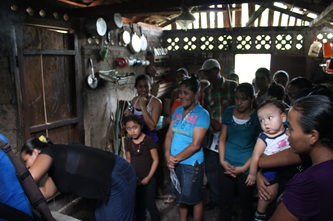
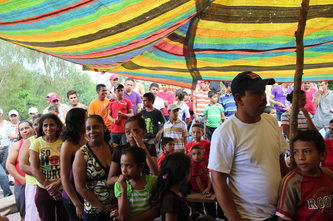

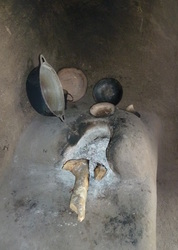
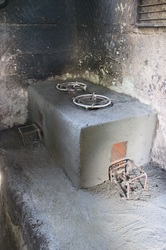
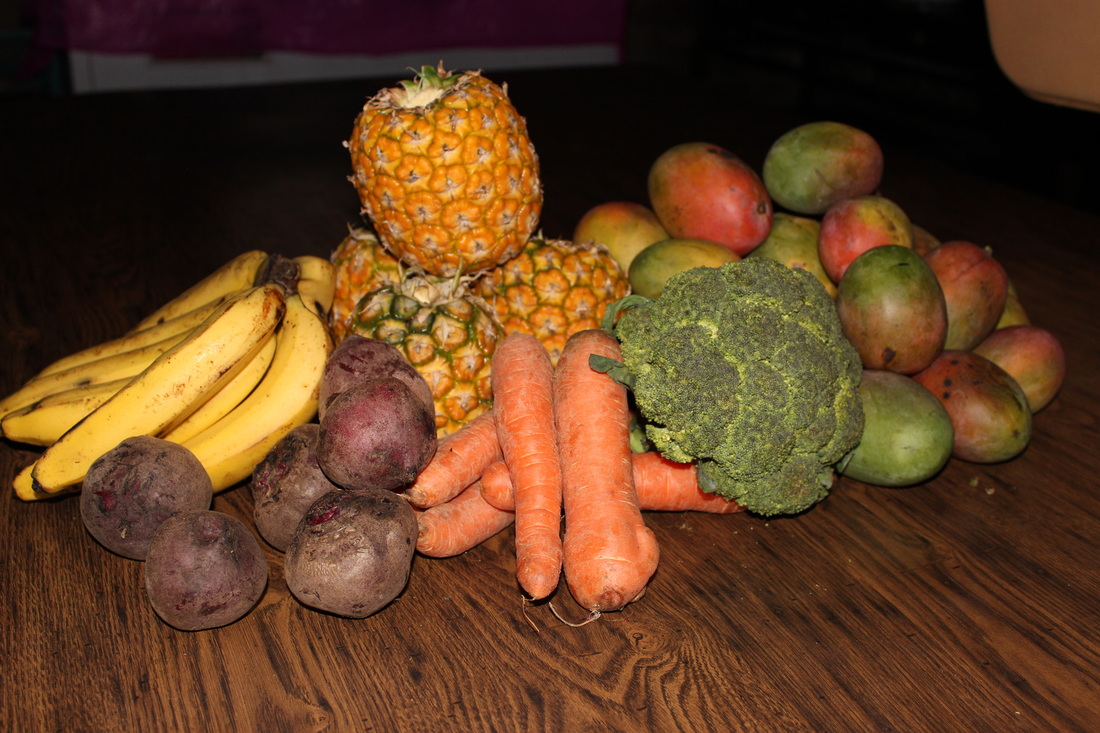
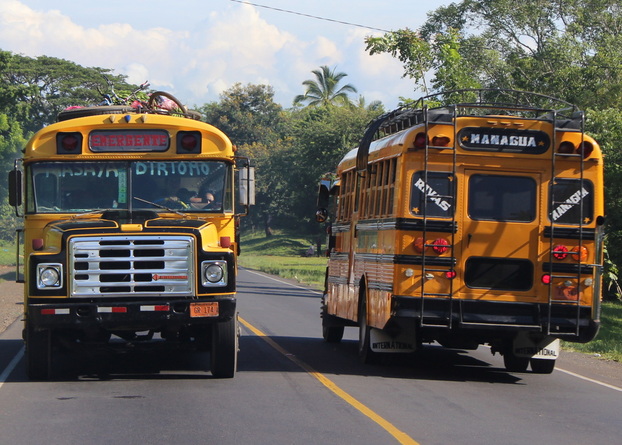
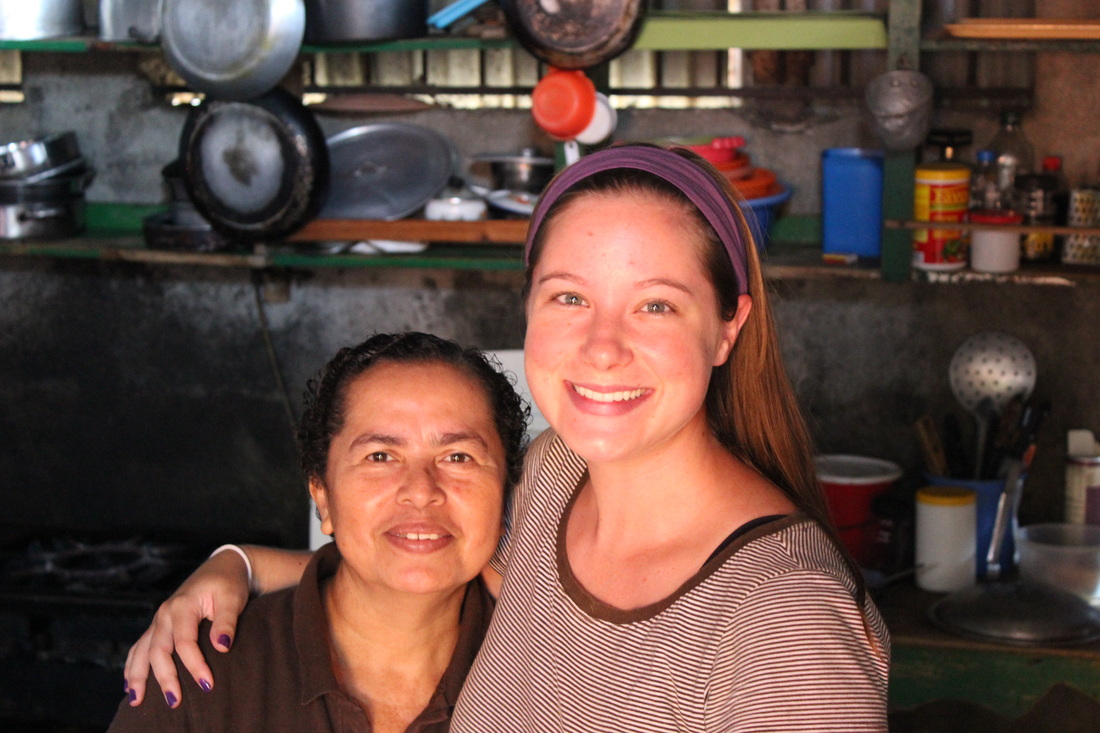
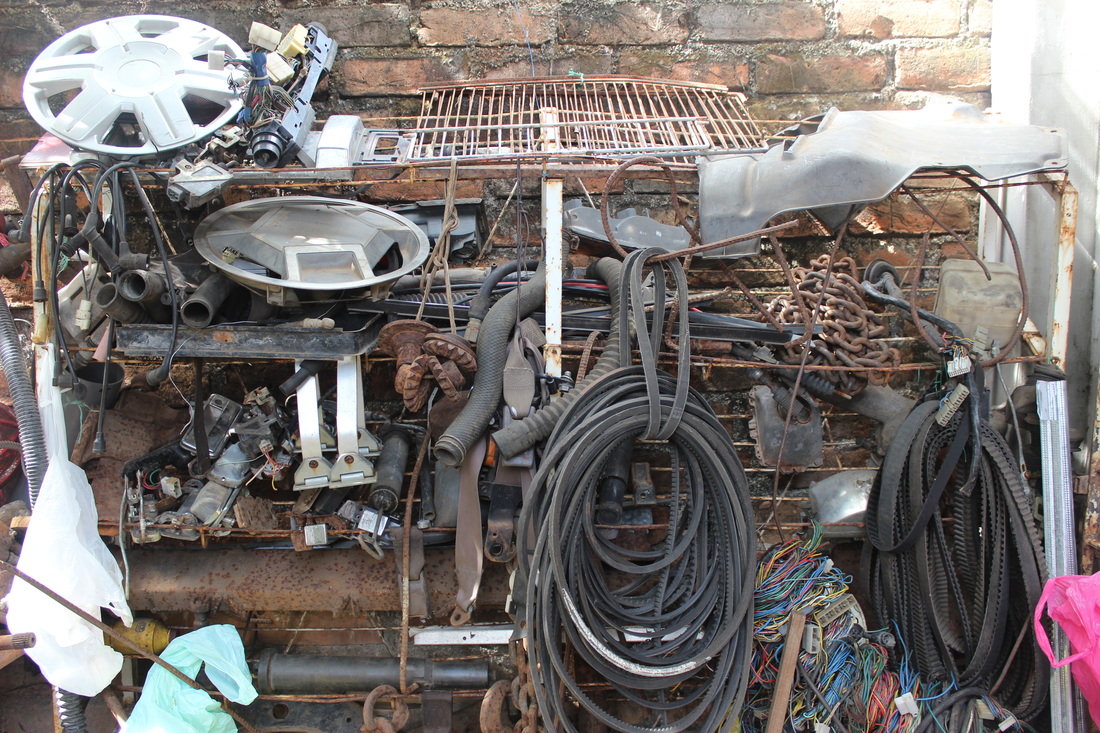
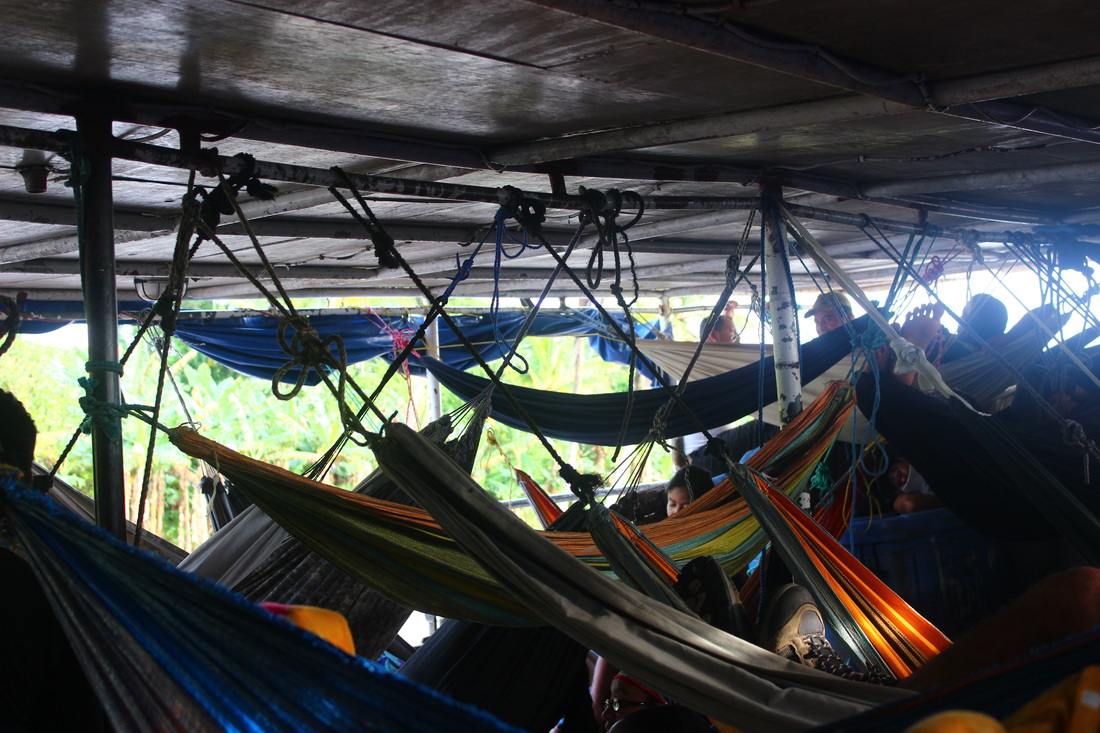
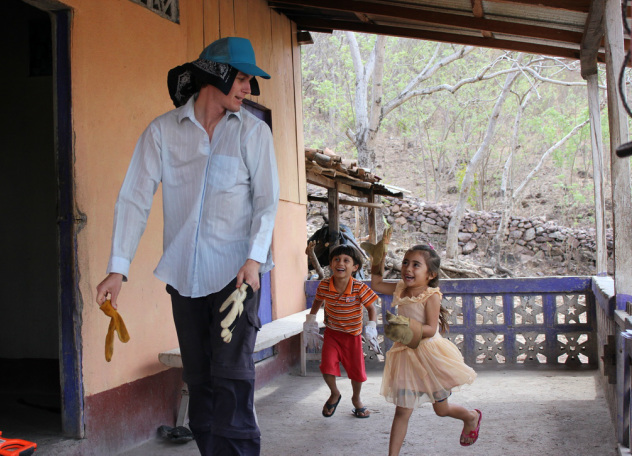
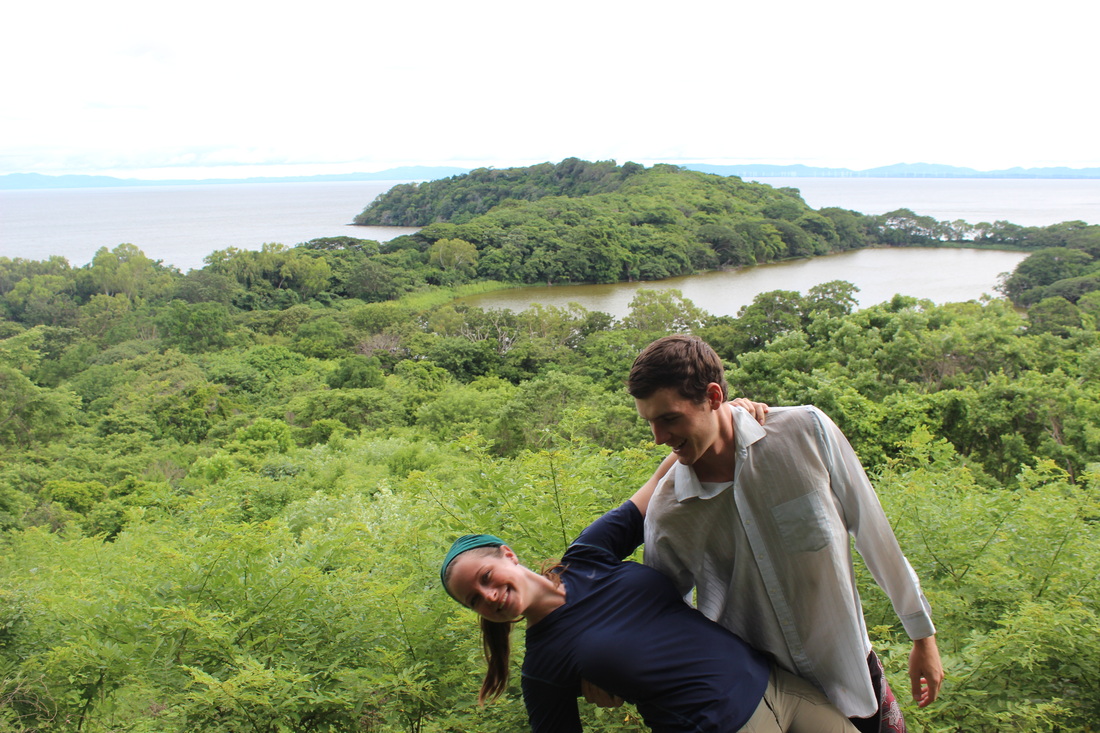
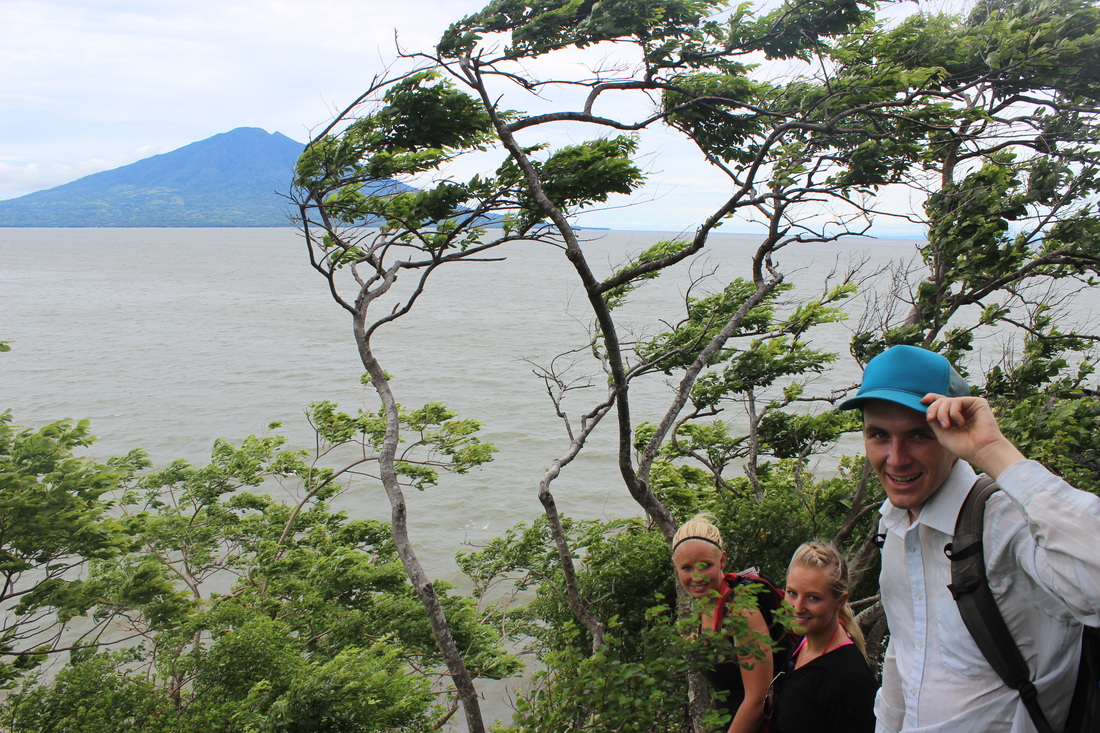
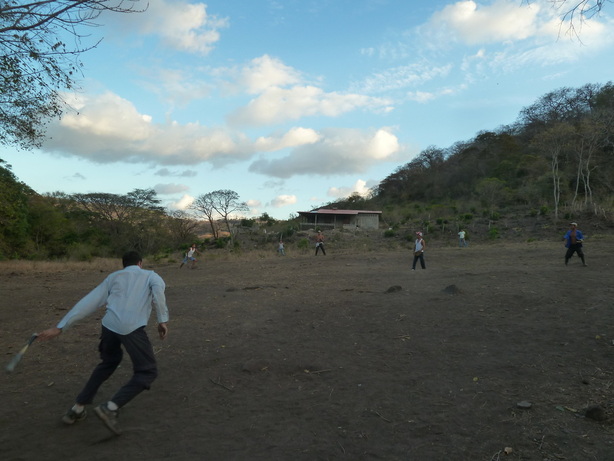
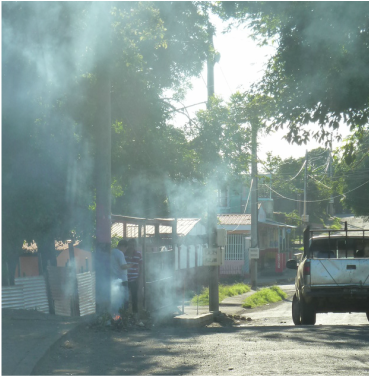
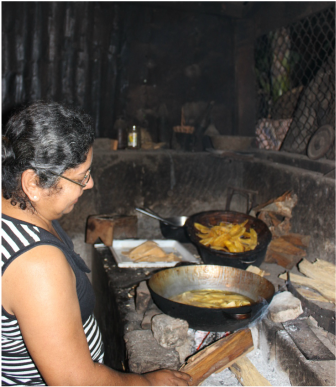
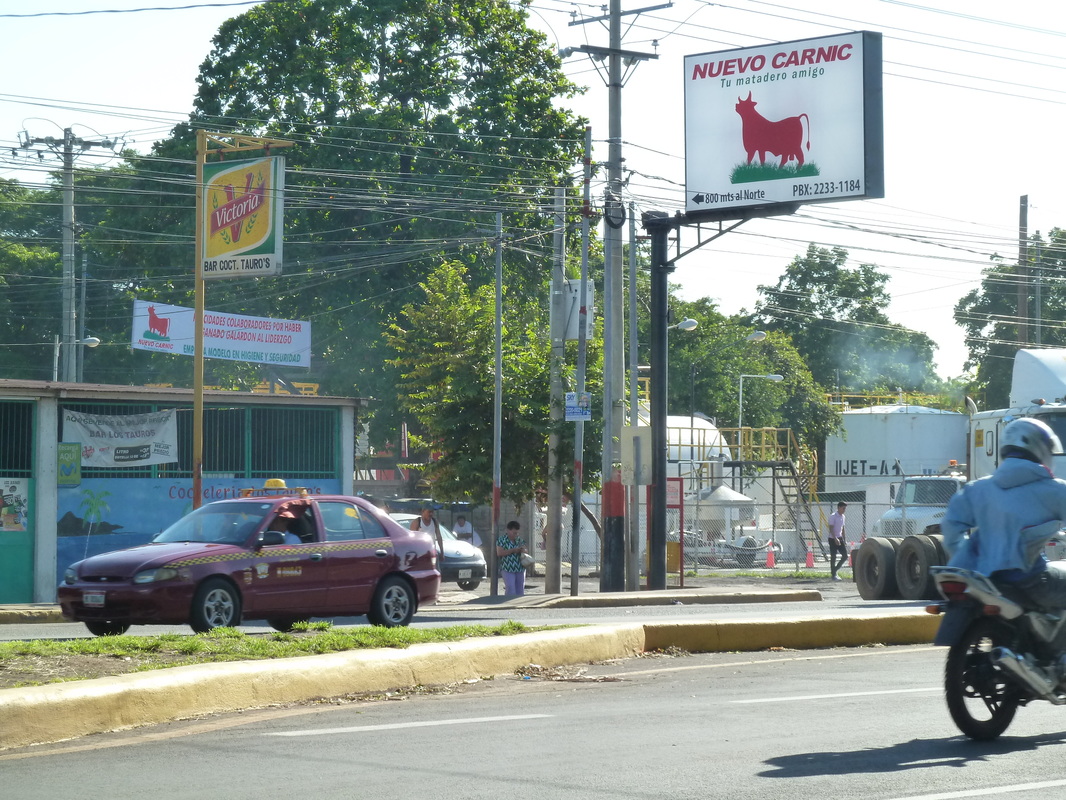
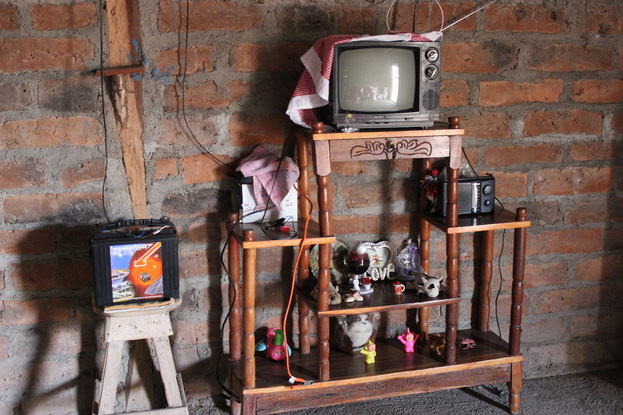
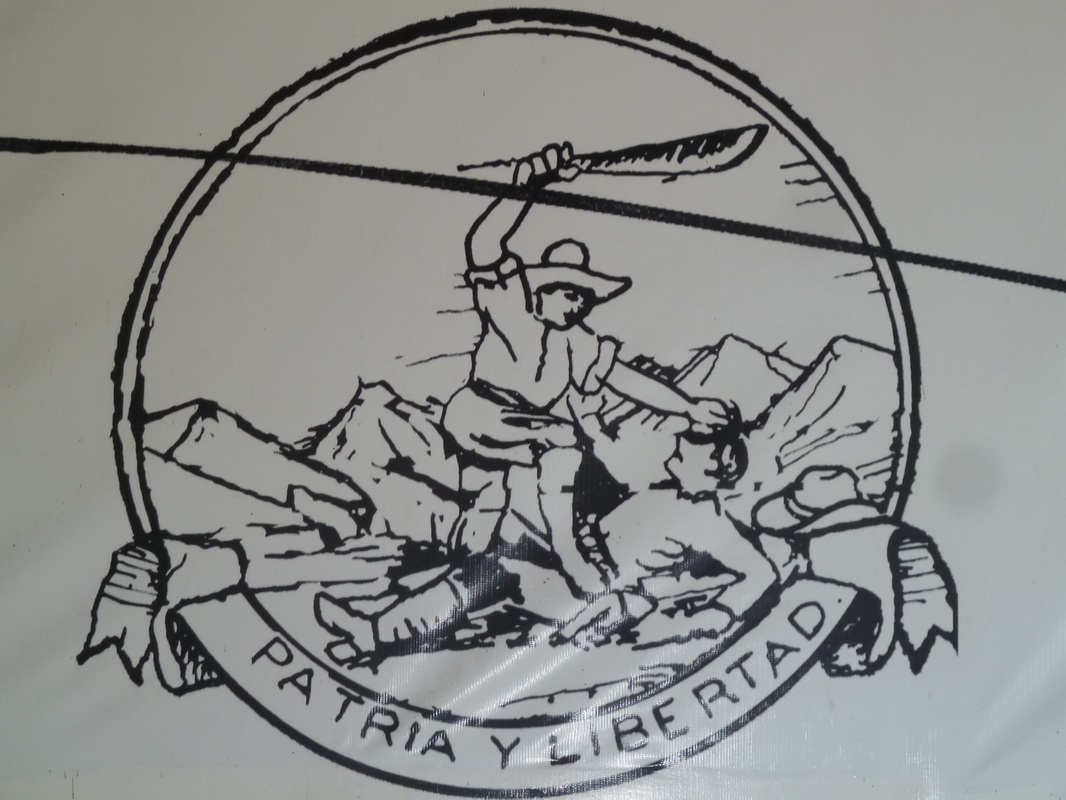
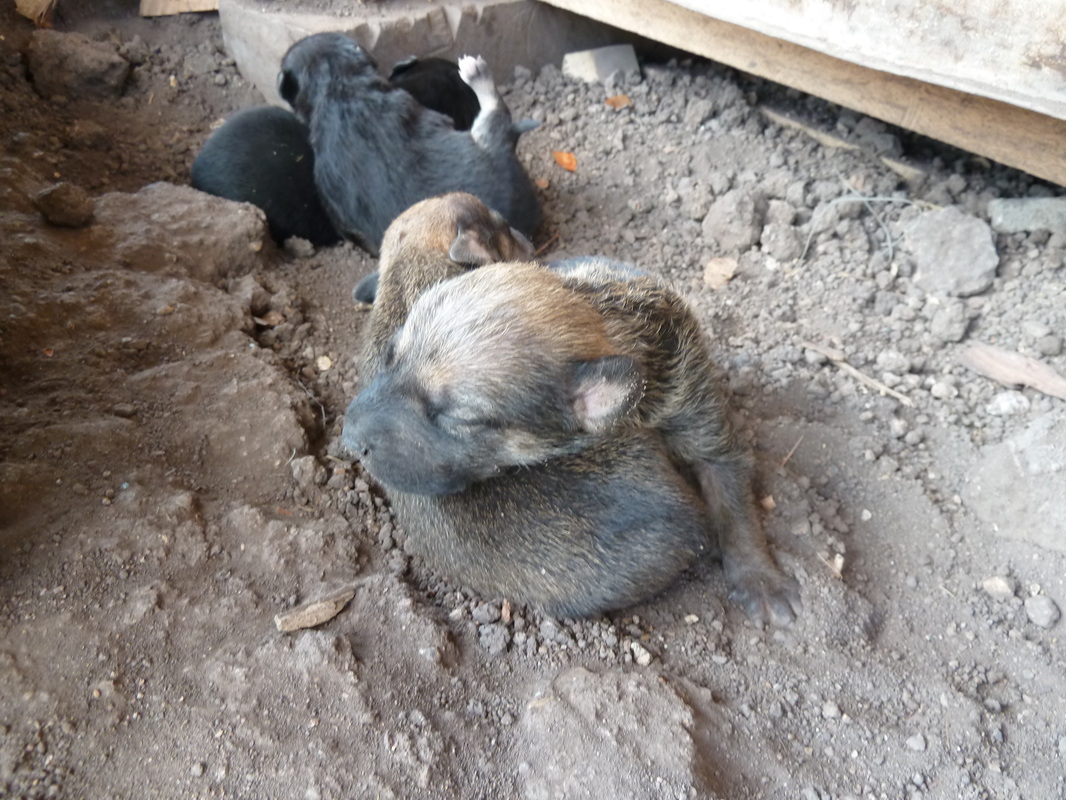
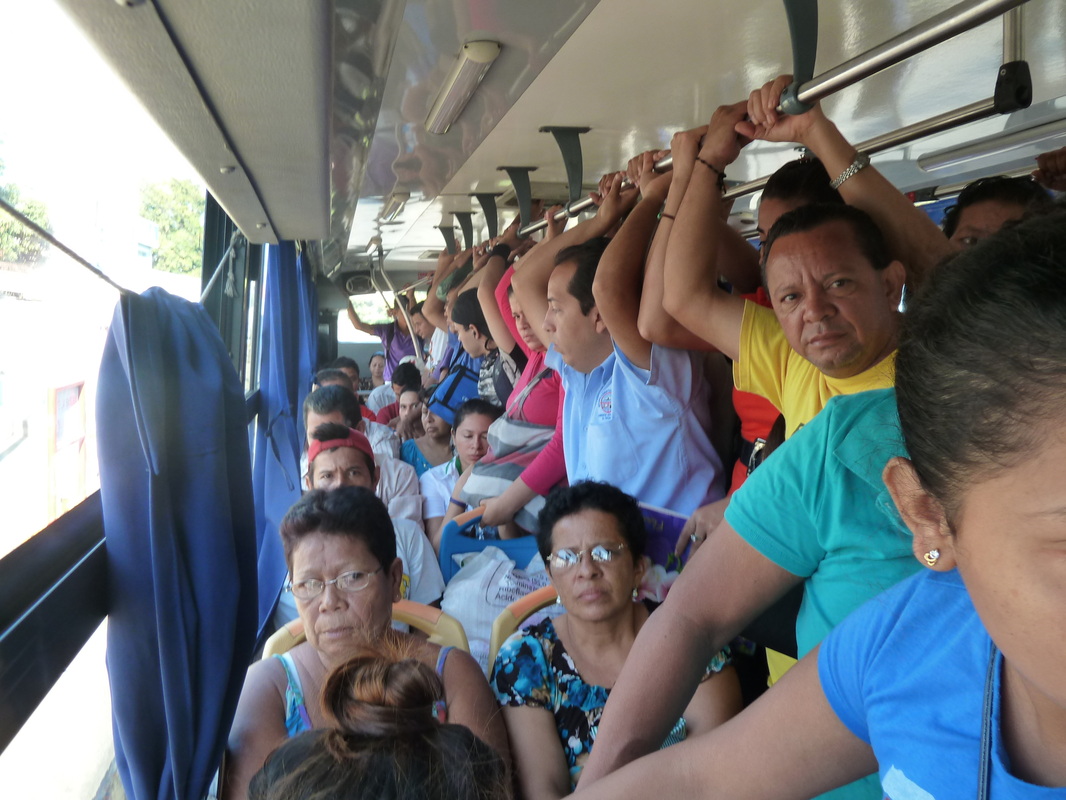

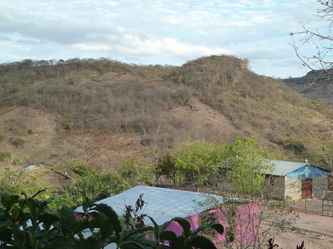
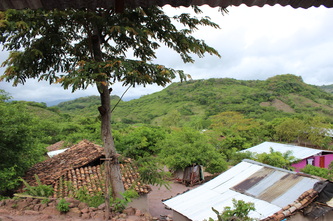
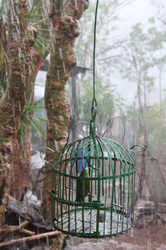
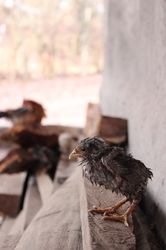
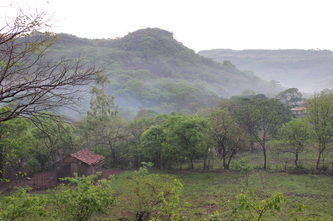
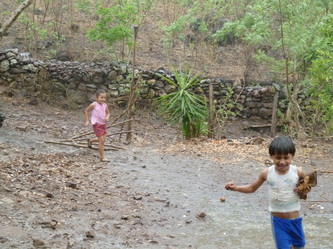



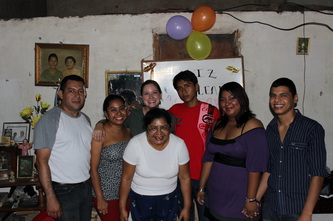
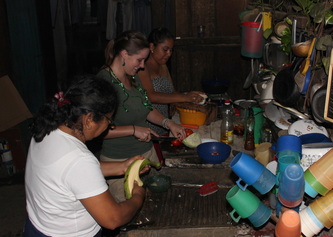
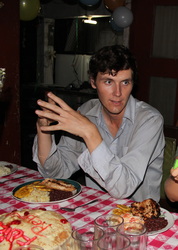
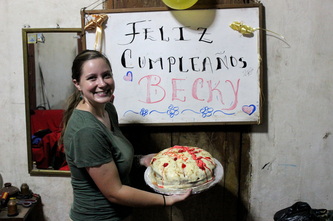
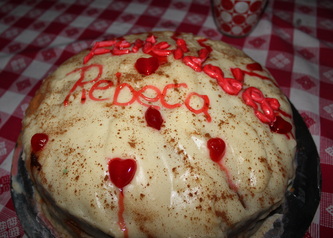



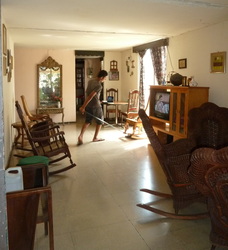
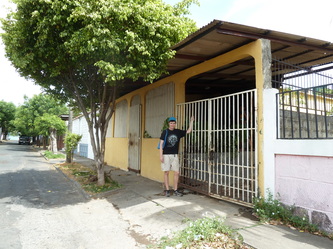

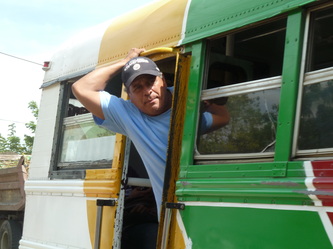
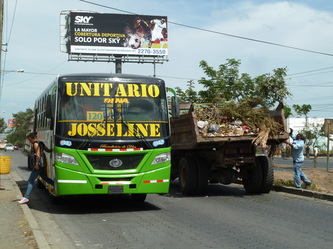
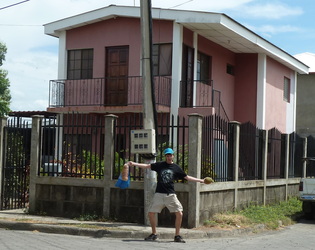
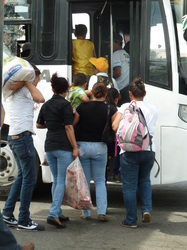

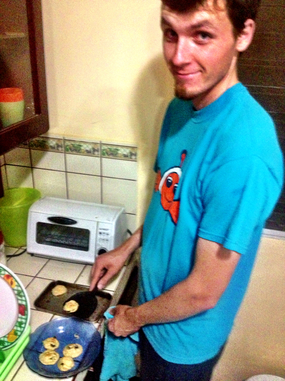
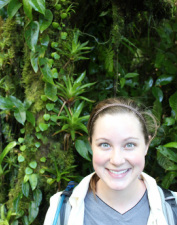
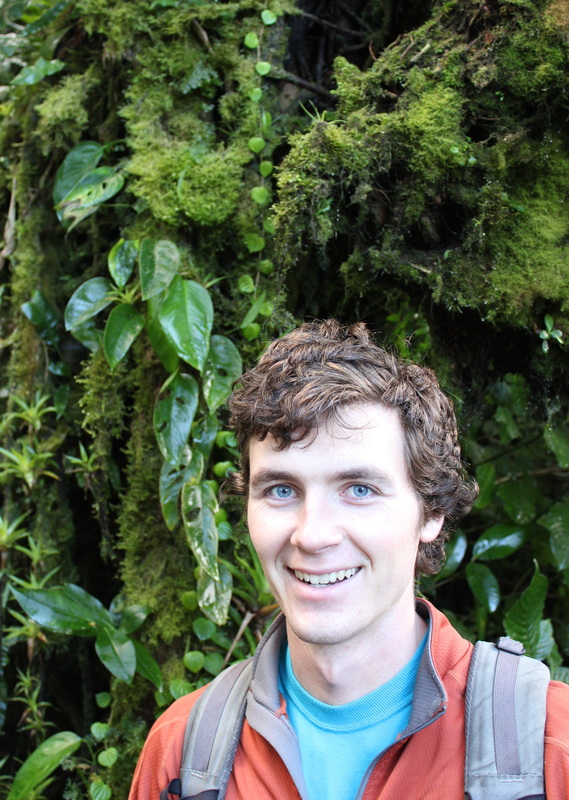
 RSS Feed
RSS Feed